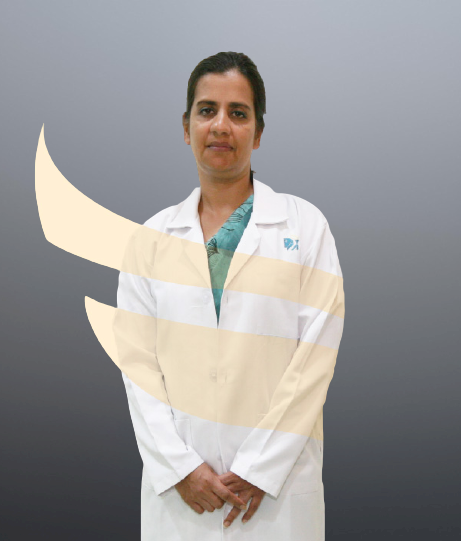Search Result: 5

Dr Aniel Malhotra
MBBS, MS, DOMS
Registration No
205413
Language
English, français, हिंदी

26 years experience overall

Sarita Vihar , Delhi
TUE, FRI, SAT | MON, WED, THU(12:00 PM-04:00 PM | 10:00 AM-12:00 PM)

Dr Ashu Agarwal
MBBS, MS
Registration No
678240
Language
English, हिंदी

24 years experience overall

Sarita Vihar , Delhi
THU | SAT | TUE(12:00 PM-04:00 PM | 04:00 PM-06:00 PM | 10:00 AM-12:00 PM)

Dr L R Seth
MBBS, MS, DOMS
Registration No
452
Language
English, हिंदी

30 years experience overall

Sarita Vihar , Delhi
MON, THU, FRI | TUE, WED, SAT | MON, THU, FRI(08:00 AM-10:00 AM | 12:00 PM-04:00 PM | 10:00 AM-12:00 PM)

Dr Ranjana Mithal
MBBS, MS
Registration No
460
Language
English, हिंदी

31 years experience overall

Sarita Vihar , Delhi
MON, FRI | TUE, WED, SAT(12:00 PM-03:00 PM | 10:00 AM-12:00 PM)

Dr Uma Mallaiah
MBBS, DO, FRCS
Registration No
457
Language
English, हिंदी

20 years experience overall

Sarita Vihar , Delhi
TUE, FRI | WED, THU | MON, SAT(10:00 AM-02:00 PM | 01:00 PM-03:00 PM | 02:00 PM-04:00 PM)
Frequently Asked Questions for Cataract surgery in Delhi
Cataract surgery does not have an age limit. The individual’s health and the impact of the cataract on their eyesight influence the decision to have surgery. As long as a person is healthy enough to undergo surgery, age is not a limiting factor.
Laser cataract surgery offers certain advantages over traditional cataract surgery, such as greater precision and potentially faster recovery. However, both procedures are highly effective in improving vision, and the choice between them depends on individual factors and the surgeon’s expertise.
After cataract surgery, it is recommended to wear dark glasses or sunglasses for a few weeks, especially when outdoors or in bright light. This helps protect your eyes from excessive sunlight and glare during the healing process.
Bleeding during cataract surgery is rare. The procedure is performed using advanced techniques that minimise bleeding. However, in rare cases, some minimal bleeding may occur, but it is usually controlled during the surgery.
Delaying cataract surgery can lead to worsening vision and decreased quality of life. Cataracts do not go away on their own, and delaying treatment can make the surgery more complicated and increase the risk of complications.
Eligibility for cataract surgery is based on the severity of your cataract and its impact on your vision. Your ophthalmologist will assess your condition and determine if surgery is necessary. Generally, cataract surgery is recommended when the cataract begins to interfere with daily activities.
You can usually take a head bath after cataract surgery once your eye has healed, which is typically within a week. However, it is important to follow your doctor’s advice and avoid getting water or shampoo directly into the eye.
You will be given eye medications to prevent infection and aid healing following cataract surgery. Wear a protective shield over your eye and prevent rubbing or applying pressure to the eye. Your ophthalmologist will schedule follow-up appointments to check your development.
Cataract surgery typically takes about 15 to 30 minutes to complete. However, you should plan to spend a few hours at the hospital or clinic for pre-operative preparations and post-operative monitoring.
Before cataract surgery, your ophthalmologist will perform a thorough eye examination to determine the size and location of the cataract. You may be advised to stop taking certain medications and avoid eating or drinking for several hours before the surgery.
Cataract surgery has a very high success rate, with most patients experiencing improved vision after the procedure. But, the success rate can change depending on individual factors such as the health of the eye and any underlying conditions.
The recovery time for cataract surgery is quite short. Most patients are able to return to their normal activities within a day or two after the procedure. However, it may take a few weeks for vision to fully stabilise.
There are two types of cataract surgery: extracapsular cataract extraction (ECCE) and phacoemulsification. Phacoemulsification involves breaking up the cataract with ultrasound and removing it through a small incision. ECCE involves making a larger incision to remove the cataract.
An ophthalmologist, who specialises in eye care and surgery, usually performs cataract surgery. It is important to choose an experienced and skilled surgeon for the best results.
Related Procedures in Delhi
Related Treatments in Delhi
- Doctors for Blepharitis Treatment in Delhi
- Doctors for Cataracts Treatment in Delhi
- Doctors for Color Blindness Treatment in Delhi
- Doctors for Glaucoma Treatment in Delhi
- Doctors for Keratoconus Treatment in Delhi
- Doctors for Pink Eye Conjunctivitis Treatment in Delhi
- Doctors for Retinal Detachment Treatment in Delhi
- Doctors for Retinitis Pigmentosa Treatment in Delhi
- Doctors for Strabismus Treatment in Delhi
- Doctors for Uveitis Treatment in Delhi
Other Specialities in Delhi
- Best Urologist in Delhi
- Best Pulmonologist in Delhi
- Best General Physician in Delhi
- Best Endocrinologist in Delhi
- Best Cardiologist in Delhi
- Best Oncologist in Delhi
- Best Radiologist in Delhi
- Best Orthopedics in Delhi
- Best Hepatologist in Delhi
- Best Gynecologist in Delhi
- Best Dermatologist in Delhi
- Best Gastroenterologist in Delhi
- Best Psychologist in Delhi
- Best Ent Specialist in Delhi
- Best Nephrologist in Delhi
- Best Rheumatologist in Delhi
- Best Diabetologist in Delhi
- Best Psychiatrist in Delhi
- Best Neonatologist in Delhi
- Best Dentist in Delhi
- Best Dietitian in Delhi
- Best Haematologist in Delhi
- Best Pediatrics in Delhi
- Best General Surgeon in Delhi
Top Hospitals in India
- Hospitals in Ahmedabad
- Hospitals in Bangalore
- Hospitals in Bhubaneswar
- Hospitals in Bilaspur
- Hospitals in Chennai
- Hospitals in Delhi
- Hospitals in Guwahati
- Hospitals in Hyderabad
- Hospitals in Indore
- Hospitals in Kolkata
- Hospitals in Madurai
- Hospitals in Mumbai
- Hospitals in Mysore
- Hospitals in Nashik
- Hospitals in Noida
- Hospitals in Visakhapatnam
- Hospitals in Lucknow
- Hospitals in Bhopal
- Hospitals in Karur
- Hospitals in Kochi
- Hospitals in Nellore
- Hospitals in Trichy
- Hospitals in Kakinada
© Copyright 2024. Apollo Hospitals Group. All Rights Reserved.
 +91 8069991061
Book Appointment
+91 8069991061
Book Appointment






 Call Now
Call Now





